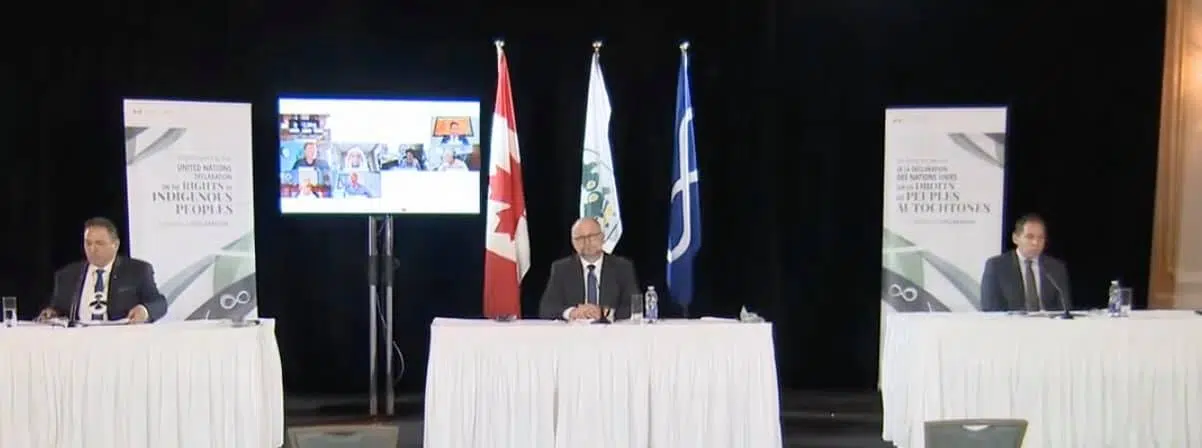Canada is moving to implement the United Nations Declaration on the Rights of Indigenous Peoples.
The bill to make it happen has been introduced in the House of Commons.
If passed, it would require the government to ensure future laws recognize the rights of Indigenous people.
Justice Minister David Lametti says it’s a statement that Canada values, respects, and promotes the rights of all people, not just some.
“The legislation is a significant step forward on the shared past to reconciliation for Indigenous and non-indigenous people alike. It has the potential to be transformational,” says Lametti.
Assembly of First Nation National Chief Perry Bellegarde calls it an important day for Indigenous people.
“The Assembly First Nation has long championed the United Nations Declaration of the Rights of Indigenous Peoples. We view the Declaration as an essential foundation for protecting and realizing inherent rights and title of First Nations, and for building a better relationship with Canada,” says Bellegarde.
Bellegarde adds the Declaration doesn’t give Indigenous people anything new but recognizes and reaffirms their rights in federal law.
He’s encouraging all parties to support the bill.
The Declaration was approved by the UN in 2007. Initially, Canada voted against it but reversed its position in 2016, a few months after the federal Liberals were elected to power.
Crown-Indigenous Relations Minister Carolyn Bennett says it should not be seen as being scary.
“It provides Canada with a road map to truly legislate the honour of the Crown. Already, there are nine federal laws that refer to and were drafted in the spirit of the Declaration,” says Bennett.
The Declaration includes 46 articles that affirm a broad range of collective and individual Indigenous rights, including rights related to self-determination and self-government, equality and non-discrimination, culture, language and identity, lands, territories and resources, and Indigenous institutions and legal systems, among other rights.
Implementing the Declaration were recommendations from both the Truth and Reconciliation Commission and the National Inquiry into Missing and Murdered Indigenous Women and Girls.







